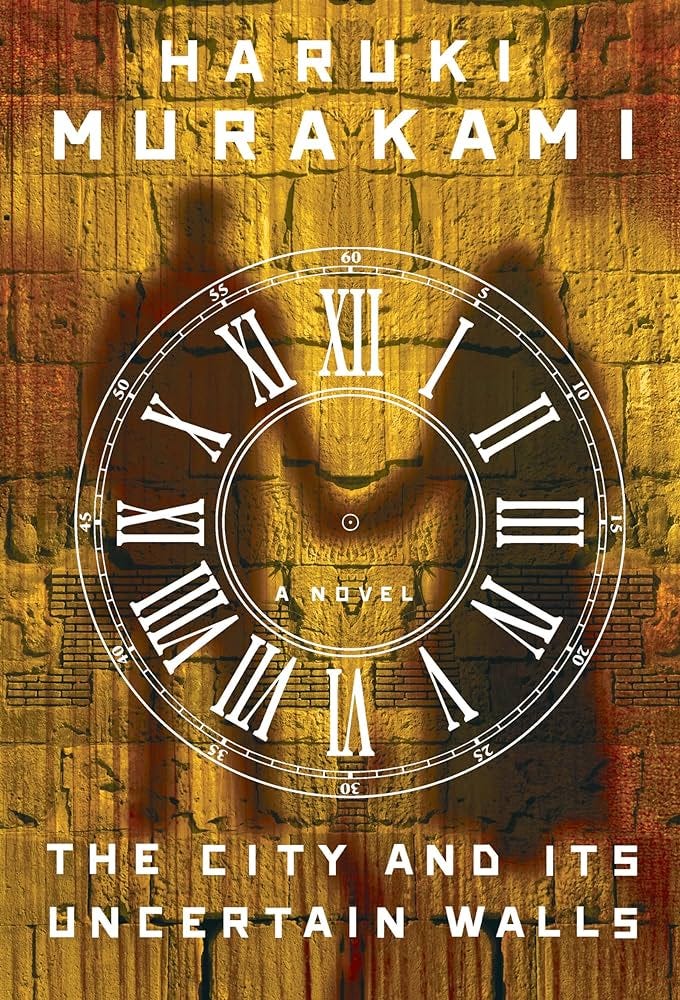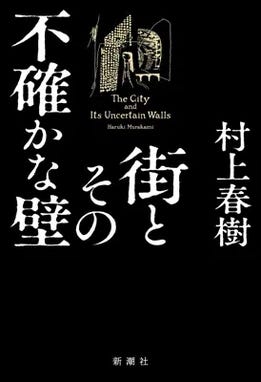Murakami’s New Novel: What Do We Know So Far?
Haruki Murakami’s latest novel, The City and Its Uncertain Walls, is scheduled for publication in November 2024.
The English translation of Haruki Murakami’s latest novel, The City and Its Uncertain Walls, is scheduled for publication in November 2024, but what do we know about it?
The book is already available in Japanese and a number of other languages (German, Spanish, Dutch), so we have plenty of information about its plot and readers’ views. There is also a small amount of information available from the publishers and the author.
First of all, the book builds upon a novella of the same name that Murakami wrote at the beginning of his career. The author frequently goes back to old ideas and builds upon them when he is unhappy with their execution, so this should not be a huge surprise. He was very embarrassed about the original novella and never allowed it to be translated. He ultimately included part of the story in Hard-boiled Wonderland and the End of the World, which admittedly makes this revision a little unusual, but from the sounds of it, the new novel goes in a wildly different direction.
The City and Its Uncertain Walls is told in three parts, with the first part basically a rewriting of that earlier story. Later, the protagonist—now an adult—goes to work in a library, where he is a dreamreader, just like Hard-boiled Wonderland and the End of the World. Like the protagonist of that novel, he must decouple from his shadow to enter a city. Some have said the book is very much a writing and extension of Hard-boiled Wonderland and the End of the World… but without the “hard-boiled wonderland” part, and others have claimed the boy-girl thread is rather similar to Norwegian Wood.
I will not give any more of the plot away because immediately we enter the territory of spoilers, but if you want to know what it’s all about, someone has given an extremely detailed synopsis on Wikipedia. There’s a less detailed and relatively spoiler-free synopsis here, too. Suffice it to say, the whole thing is pretty on-brand for Murakami, with its ghosts and unreal locations, its mixture of the real world and a magical one, a whole lot of ambiguity, as well as its boy-girl dynamic and references to the Beatles… But again, no spoilers here.
But is it any good? That’s what we all want to know…
From what I’ve read, people are a bit negative about it. It is “classic Murakami” in one sense, but of course we don’t want our favourite writers to simply rehash the same old stuff. Many in the West have felt that Murakami has been saying the same thing over and over since Kafka on the Shore, which is perhaps harsh but not entirely unfair.
Of course, Murakami’s Japanese fans have always been a little kinder than those in the English-speaking world. Whether that is because of translation issues, cultural factors, or simply the nature of fandom is unclear. Think of 1Q84, for example. Japanese critics consider it one of the finest books of the modern era but abroad it has been criticised as silly, repetitive, and sexist.
About The City and Its Uncertain Walls, readers on Book Meter seem moderately happy with it but the Japan Times reports that old issues persist: female characters are not well developed and the ambiguity can be annoying. One reviewer calls it “one of the most boring, uneventful, and poorly organized works in his 44-year writing career [...] It’s difficult to express just how bad this book is.” Well, that’s not inspiring.
It seems that early readers outside of Japan are not hugely impressed, either. On a major Murakami Facebook group (which, as of writing, has almost 70,000 members), those who have read it in other languages, including Dutch, consider it rather weak. They do note, however, that the first part of the book, which was more or less taken from his novella, is the best part. Some have said that the relationship between the protagonist and his shadow is far more developed than in Hard-boiled Wonderland and the End of the World, although it should be noted that weaknesses in that older novel could stem from translation issues.
I am personally not one to put too much stock in reviews. In the 21st century, people make a lot of money from having strong opinions and it’s easier to be negative than positive. I also really liked some of Murakami’s less-appreciated books, like After Dark. (Although I will admit I usually dislike them on the first read and love them on the second for some strange reason!) I look forward to the November launch of this novel and won’t let any negative reviews impact how I perceive it.





